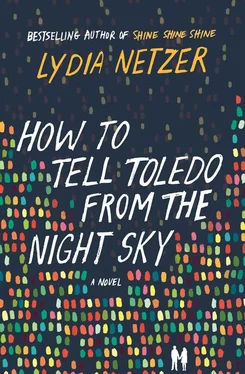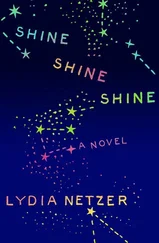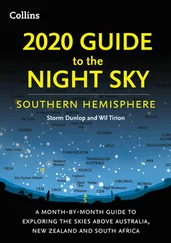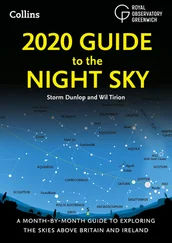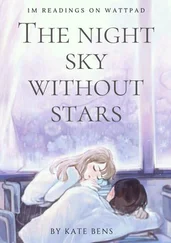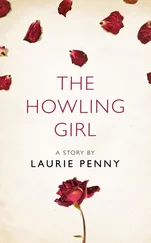Dr. Bryant stood up and began to applaud, gesturing to the audience to do the same. He took Irene by the arm and gently led her to her seat. She shook her head. She seemed to be still talking. But the audience was enthusiastic. They clapped and clapped.
* * *
I’m having a heart attack, thought Irene. I’m dying, I’m dying, I’m dying. This is it.
Death does have an event horizon, she realized in that moment. Surely this must explain why she could still hear the reception going on around her, still smell the lobster ravioli on the plate next to her, still hear the band, a couple of Bolivians with acoustic guitars and a Latin drum kit crooning. Maybe she would remember everything that happened before the fire. Maybe her life would parade before her eyes as her heart clutched and cramped, her brain failed from oxygen deficiency, her eyes closed. To everyone around her, it would seem that she fell straight to the floor. But to her, a lifetime of movement and memory would pass between the heart attack and the death. Time to think of everything. She waited for the slideshow to begin.
Some of the astronomers and their rich enablers were taking a spin around the dance floor, trying to samba or just shake it.
“I need a drink,” said Irene aloud to no one in particular, and she stood up. With her legs under her, her heart raced and skipped, but she was able to walk. She wasn’t looking for the man at the table with Belion. But there he was, beside her, at the table where drinks were being served. She asked for a ginger ale. He was so familiar and so attractive, but she had never met him before. She wanted to say, How are you? How have you been?
A past life maybe, said her mother’s dreamy voice in her ear. In a past life, you were lovers .
“Who are you?” she said. “Do I know you?”
“I’m George,” he said. “George Dermont.”
He was tall, smiling. He looked so glad to see her. She felt she might put her arms back around him, press her face into his ribs. I missed you, she might say. Or some stupid thing that one of her mother’s clients would come up with. We were Scottish lords and ladies together. We were locked in a pyramid together. We were climbing the Andes together. Whatever. Where have you been?
“Oh, right, Dermont.” She felt a twinge of surprise that this man and the man she’d taken her office from would be the same. “You’re sort of … religious, is that right? And I’ve got your lab and assistant now. How you must hate me.”
“No, no!” he said, grinning. He seemed incapable of controlling his hands, switching his drink from one to the other, leaning on the table, fussing with his collar. She could not help but imagine those hands touching her hair, pulling at it, lodging themselves in it. There was some force pulling her ribs to his, her internal organs to his. As if she could never be warm again, without the warmth in his torso, without her face in his neck.
“I really like you,” he said. “I mean, I’m not religious. You’ll see, once you get to know me.”
“I think you dabbled with one of my friends at the University of Toledo, years ago,” said Irene. She felt herself scrabbling backward from him and this attraction, like she was cutting off tentacles of herself as they reached out for him, freezing them off, cauterizing the stumps.
“Probably not,” he said. “Well, was she an astronomer? I—”
Irene picked up the ginger ale that the man in the jacket had set down for her.
“And you believe the stars are God’s daisy chain or something like that … I actually read your abstract for that piece in the Dark Star Review .”
Irene wanted to leave and go back to the dais and safety, but she could not. She was looking at his face, his pink cheeks, the dark curve of his brow, his square chin. There was something about her body that was saying to her brain that he was already hers. She recognized him, and she couldn’t turn away from him. She wanted to go toward him, to slip her hand inside the button placket of his shirt, and touch his skin, and feel his heartbeat with her hand. It was a palpable want. She felt that if possible she should be very mean to him. As a precaution.
“You read that?” said George.
“My mother sends me clippings sometimes … you know, she doesn’t know a lot about real astronomy. She’s an astrologer.”
“How strange. My mother used to be an astrologer, too.”
“Really,” said Irene. She took a deep pull of her ginger ale, suddenly feeling so dry.
“I mean, not a professional one. Just an amateur one.”
“Mmm,” she said. There was a flush creeping over his throat. His eyes kept darting back and forth from her to the rug. He seemed on edge, excited.
“I’m a—oh what can I say—”
“Are those your parents?” said Irene, pointing over to the table where George had been sitting.
“Yes,” said George. “Those are my parents. Right over there.”
“We should go over,” said Irene. “I think your parents are devouring my boyfriend by inches.”
“Is that your boyfriend? Well, I hope they came hungry,” said George quickly, and then his jaw dropped and he stared at her, stricken. “Did I just say that? I’m so sorry.”
“That was not kind,” she said to him. But she found she was smiling. And she recognized also, in that second, that her heart had slowed to a reasonable pace, and she was no longer dying. But she did not slip her hand into his. She did not nudge him with her shoulder. She was in control of her body.
“Sorry, it’s just—you’re so beautiful. I didn’t think he could be your boyfriend. I’m sorry, I’m sure he’s really … smart?”
Irene picked up her drink and walked off to the table, glancing backward to George in what she meant to be a reproving glare, before she sat down decisively on Belion’s lap. But had she winked at him instead? Had that happened to her face?
“Hello,” said the man George introduced as his father. “I’m Dean. So nice to meet you.”
“Dean,” said Irene. “I’m Irene. And this is my boyfriend, Belion.”
“Belion was just telling us about how he is an immortal in a role-playing game. That must be very exciting,” said the woman George introduced as his mother. “Being an immortal.”
“I don’t play,” said Irene.
“It is,” said Belion. “Very.”
“Reminds me of good old Uncle Ray,” said Dean. “He thought he was an immortal, too.”
“Uncle Ray!” said George, joining the table but standing awkwardly behind Kate Oakenshield’s chair. “Yes, in a way. He was perfectly immortal, right up until the time he shot himself playing Russian roulette.”
“Wow, really?” said Belion. “I didn’t even think that game was real.”
“It’s not necessary to go into all this,” said Sally.
“Uncle Ray!” Dean went on, entertaining the table. “Yes, he was the finest of uncles. He escaped from prison once on a cow.”
“What?” said Belion, profoundly interested.
“It was a low-security prison,” said George. “He used the cow to swim across a river. True story.”
“This is not appropriate,” Sally said. “I don’t think we need to talk about Uncle Ray anymore. You’re making him sound like Paul Bunyan or something.”
“Paul Bunyan,” said Belion with arch solemnity. “Was my father.”
Dean laughed long and loud. “I like you, Belion,” he said to Belion. “You are not so bad.”
“Belion,” said Irene. “I’m tired. I think we need to go. Goodnight, all. Goodnight, George.”
* * *
Outside the ballroom, locusts whirred in the branches of the maple trees, and the occasional breeze set the leaves stirring and rippling. Couples and groups meandered down the street or popped into cars the valets were bringing around. Irene and Belion had gone home, with Belion packed into her little car and Irene driving. George stood by himself on the sidewalk, just thinking about her, and wondering how soon he could get her into his orbit again.
Читать дальше
